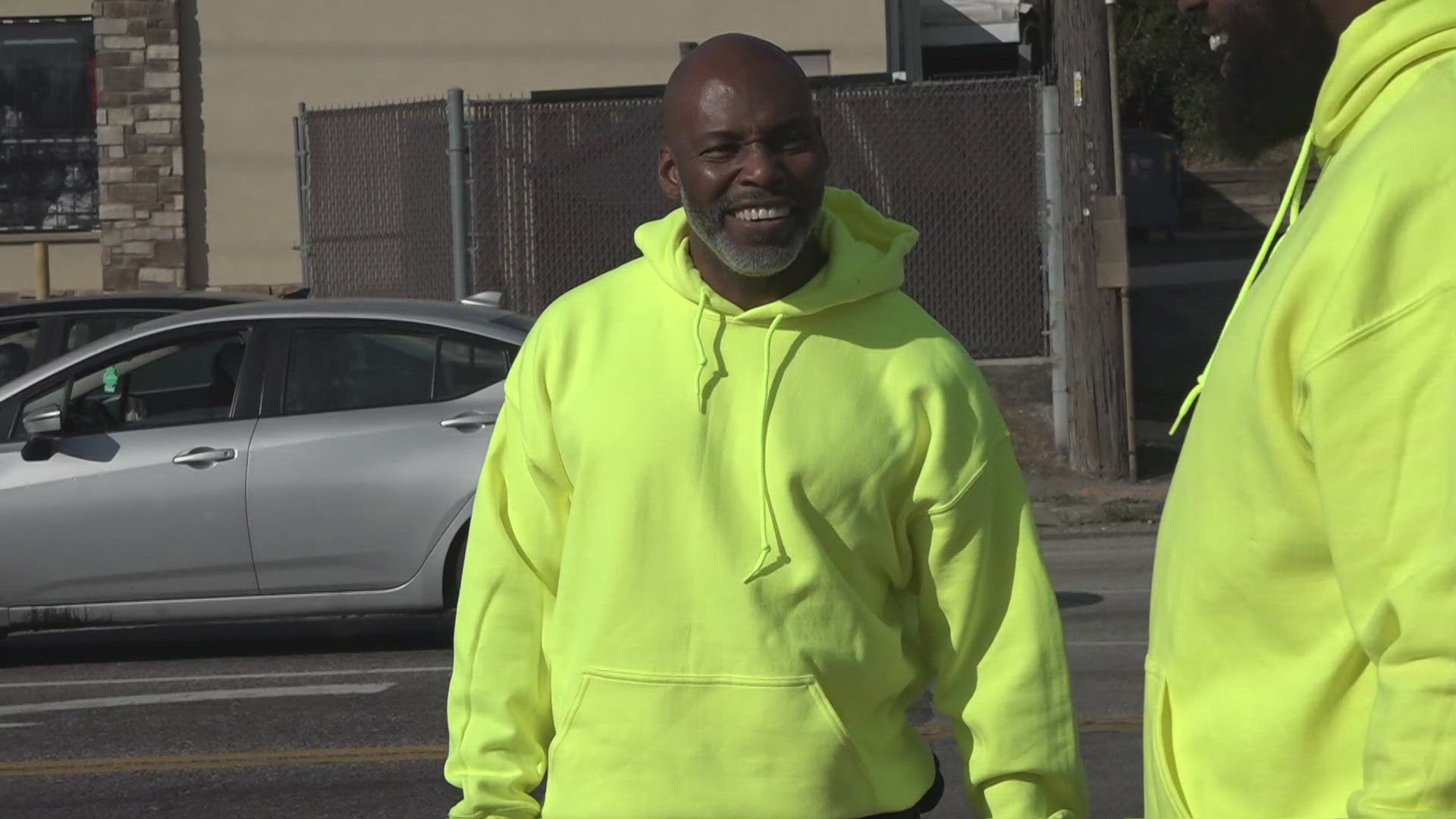DELLWOOD, Mo. — Lamar Johnson has a new job after his wrongful conviction was vacated after 28 years in prison.
According to a press release from the City of Dellwood, Johnson was hired as a full-time employee of the city's public works department after completing the Urban League of St. Louis' "Save Our Sons" job training program.
Editor's note: The above video was published in February of 2023.
"Lamar earned the opportunity to work for the City of Dellwood through his dedication, perseverance, and strong performance during the interview process," the press release said.
His first day on the job is Oct. 23. He was officially hired Oct. 18.
Johnson was sentenced to life in prison for the death of Marcus Boyd after Boyd was shot to death on the front porch of his home by two men wearing ski masks on Oct. 30, 1994.
Then-St. Louis Circuit Attorney Kim Gardner filed a motion in August of 2022 seeking Johnson's release after an investigation her office conducted with help from the Innocence Project convinced her he was telling the truth.
Circuit Judge David Mason overturned Johnson's conviction after a five-day hearing and 60 days of deliberation and said there was clear and convincing evidence of innocence. Johnson was released last year in February.
In September, the Urban League said Johnson came to them for an opportunity through its 'Save Our Sons' program. That's when he began the four week course.
Tydrell Stevens, Regional Director for Save Our Sons said, "He wanted to get a job to be able to take care of himself, to be able to begin to build a life for himself. He wanted a job that he also had the potential to possibly even grow in that role or learn what he can do and take on to future roles. But he really wanted to get himself back to a place where he can build himself again."
Dellwood Mayor Reggie Jones was impressed by Johnson's preparation.
"Very intelligent, he answered questions very well. He's very dedicated and he's on time," Jones pointed out.
The Save Our Sons program prepared Johnson in multiple ways, including conducting mock interviews.
Stevens explained Johnson wanted to be active and work with his hands.
"I think when you work for local government and city government, it is a public service work and be able to give back in some capacity," Stevens shared.
Jones said Johnson is excited.
"He has a great attitude and I think it's gonna rub off on the rest of the employees and I think he will be a person that, you know, shortly probably be a candidate for even moving up," Jones shared.
Moving up and moving forward. Johnson's resilience is the force behind him to look at the road ahead.
Stevens added, "The biggest message is to never give up, right? To never give up hope."
A GoFundMe campaign raised more than $600,000 to help him after his exoneration.
Missouri has a compensation statute that is limited to cases with DNA proof of innocence, leaving Johnson with no support from the state.
In the last 35 years, 55 people with state court convictions in Missouri have been exonerated, according to the National Registry of Exonerations. In 27% of them, DNA was part of the exoneration process. Nationwide, 17% of all exonerations had DNA involved. A spokesperson with the National Registry of Exonerations said that the percentage is likely higher in Missouri because of the state’s long-standing resistance to non-DNA exonerations.
Johnson is unable to do interviews due to a pending a lawsuit with the city of St. Louis.
Counsel for Johnson includes Lindsay Runnels (Morgan Pilate) & Emma Freudenberger (Neufeld Sheck Brustin Hoffman & Freudenberger). They shared this statement:
"It’s no surprise to us that Lamar Johnson succeeded in the Urban League’s “Save our Sons” job training program or that the City of Dellwood recognized that he was an applicant they should hire. He will bring to the job the tenacity and heart that helped him survive nearly three decades of wrongful imprisonment. He was denied the opportunity to fulfill his potential for so long, but we know that when Lamar is given a fair chance, he exceeds all expectations."

